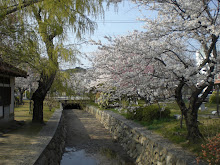Disclosure: I received this book as part of Golancz Publishing's Golancz Geeks program, but I believe I can still be relatively impartial.
One line review: fast, stylish politically minded thriller with fantasy roots and literary dreams.
Peter Higgins' first novel, Wolfhound Century, is a bit of a puzzler. It might be the most unique book I've read all year; it is certainly one of the more interesting.
Making a tight, clear summary isn't the easiest task, but I'll do my best. The story is set in a fictional land very clearly based on early Soviet-era Russia, but instead of the Soviets you have something called the Vlast, instead of the premier you have the Novozhd, etc. There is still a clear sense of paranoia and suspicion, the mistrust of artists, intellectuals and minority groups, and the police state violence you'd expect from a Soviet thriller, but this is a fantasy novel...there are giants, mystical forests with mysterious creatures, and a battle between forces greater than we first perceive.
Our central character is Inspector Vissarion Lom, a provincial policeman on the bad side of his superiors and colleagues due to an uncommon dedication to honesty and justice. He's called to the capitol, Mirgorod, to act as a secret policeman investigating a terrorist cum political agitant named Joseph Kantor, who appears to have protection from within the upper ranks of the government itself. All of this reads like standard police procedural type fare, and it is, but as we follow Lom in his investigation, we learn that there is much more to this city, and these men, than is first apparent. For example, why are there giant stone angels falling to earth, with apparently vast powers stored in their stony flesh? Why does Lom have a plug of this flesh embedded in his forehead? Why does the city occasionally experience twists in reality, as if another place, a natural place of water and trees and wind spirits, is trying to be reborn? It's all very mysterious!
I have, perhaps, come across a bit too glib, but this book is not at all so. It is quite earnest, actually, and does an excellent job of evoking the gray reality of the city of Mirgorod through language. It is in fact the language that sets this book apart in the genre, although its deeply original world is withy of respect as well. This is a rare book, I think, in that it gently evokes the tropes of high fantasy (giants, mystical forest creatures et all) while focusing on a much more modern style of low fantasy, with less clear motivations than just good vs evil, bad wizard vs shining hero. It meditates on political realities at the same time as it plays with magical ones, and it does this all in a style that carefully treads the line between literary lyricism and noirish clipping, stylish while never being obfuscatory.
The writing is clearly deliberate and careful. The words and syntax are chosen for effect and sound as well as just meaning, and it is generally a pleasure to read. There are times when it feels like Higgins got a bit too caught up in his desire for style, occasionally using a few too many ellipses to indicate confusion, or repeating a word deliberately until it seems to lose all meaning, but these are the missteps of a writer who clearly cares about his craft beyond just writing a ripping yarn. I can forgive that.
The blurbs on the cover mention China Mieville, and I will admit that if you are looking for a comparison, that might be a good one. Wolfhound Century does recall The City and City, in style and in spirit, with its Eastern Europe-that-never-was vibe and its juxtaposition of flat, police-procedural tone with unbelievable scenarios (in Wolfhound Century, Inspector Lom gets in a fight with rain!). However, I also found myself similarly reminded of Michael Chabon's The Yiddish Policeman's Union in tone and pace, though Chabon is more masterful with his control of language and story, not to mention thematic depth. In short, this book is probably less for the Conan/Tanis Halfelven set than the Sevarian/Tyador Borlú.
I have one big problem with the book, though. There is no resolution at all. Zero. It feels, in the end, as if the entire book is just the first act of a three part arc; we don't see the real conflict's parameters and the players don't really come into their own until the very end, meaning it's all been just setting up the real story, presumably for a sequel although no mention is made on the cover or elsewhere. I fear this may be yet another trilogy... This is particularly aggravating because the book isn't that long, just over 300 pages in hardcover. It's a fast, enjoyable and even rewarding read, with some very nice writing and real originality, but in the end is unsatisfying. I certainly want more, which I suppose is the desired effect. I just wish I'd known upfront that this was just the beginning.
Sunday, May 5, 2013
Wolfhound Century - A Review
Labels:
Books,
review,
science fiction
Subscribe to:
Post Comments (Atom)

No comments:
Post a Comment